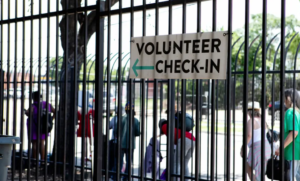Human trafficking bill with broad support moves forward

A bill that would increase penalties for human trafficking received bipartisan support in the House Judiciary Committee Wednesday.
HB 237, sponsored by Democratic Reps. Georgene Louis and Liz Thomson, both of Albuquerque, passed 10-1. Rep. Micaela Lara Cadena, D-Mesilla, voted against it.
Louis and Thomson invited victims of trafficking to speak on behalf of the bill. Dallas Grassbaugh, who now works professionally with trafficked victims, urged the lawmakers to support the bill.
“I feel that I have a lifetime of trauma I have to live with and I deal with every single day,” Grassbaugh said.
The bill, which already passed the House Public Affairs Committee, would require an individual who has registered as a sex offender in another state to also have to register as a sex offender in New Mexico. That would include sex offenders who have second homes in New Mexico or who spend limited amounts of time in the state.
Former New York City financier Jeffrey Epstein was not required to register as a sex offender in New Mexico although he was a registered sex offender in the state of Florida. Epstein owned a ranch in northern New Mexico.
The bill is one of Gov. Michelle Lujan Grisham’s legislative priorities this year. The legislation would increase felony penalties for human trafficking offenders, expand the definition of trafficking, create a minimum term of imprisonment to three years if the victim is a minor and prevent law enforcement from charging victims as sex workers.
Rep. Greg Nibert, R-Roswell, said he was glad to see this bill. Cadena said she is watching the bill closely and that she would like to see some of the concerns raised by groups who spoke in opposition to the bill be addressed.
A representative from the New Mexico Sentencing Commission, which serves as a policy resource, said his group is not in support of the bill because of the mandatory sentencing requirements. A representative from the Office of the Public Defender’s office also spoke against the bill, saying that increased sentencing does not deter this type of crime.
The bill’s Fiscal Impact Report notes that increasing criminal offenses or penalties will put an additional strain on the Public Defender Department and that some provisions of the bill will make plea deals less appealing for defendants. That would require more resources for both the court system and for the Public Defender Department, according to the report.
Rep. Gail Chasey, D-Albuquerque, said she is almost always against increasing penalties but in this case, she is for it.
“A deterrent is increased sentencing,” she said.
The Article was originally published on Human trafficking bill with broad support moves forward.







